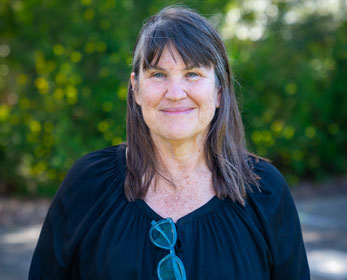In commemoration of International Survivors of Suicide Loss Day, an upcoming community event in Margaret River, supported by Edith Cowan University (ECU), aims to spark a community conversation about the experience of being bereaved by suicide.
The event includes a suicide bereavement forum, professional development training and a panel discussion.
Anyone who has been bereaved by suicide, or family, friends or professional workers supporting someone bereaved by suicide are encouraged to come along.
St John of God Social Outreach, headspace, South West Aboriginal Medical Service, Roses in the Ocean, StandBy Support After Suicide, Shire of Augusta Margaret River, and Mindful Margaret River are all working with the ECU to support the event.
Speakers at the Suicide Bereavement Forum include ECU lecturer and researcher Dr Colleen Carlon, Jacquie Tarrant from St John of God Social Outreach and Jon Eddy from Roses in the Ocean. All three speakers have lived experience of being bereaved by suicide and combine this knowledge with insights from research.
“Together we will explore how grief, trauma, stigma and taboo intersect in the experience of suicide loss,” Dr Carlon said.
“We hope to establish understandings and model language which enables people, both the bereaved and their supporters, to counter suicide stigma and taboo in their social interactions.”
Stigma a barrier to getting help
Dr Carlon said beyond the profound grief, trauma, guilt, shame and blame that people bereaved by suicide experience, they can also face stigma-related impacts that can make it difficult for them to seek help, or for others to know what support to provide.
“People bereaved by suicide often experienced a higher risk of prolonged grief where they may become preoccupied with the loss, or suffer poor health outcomes such as stress, depression, anxiety or physical health difficulties,” she said.
“Research has shown that one of the key reasons this occurs is the impact of stigma. It is the main barrier to people reaching out for and receiving support from friends and family.”
Community understanding and support vital
Dr Carlon said she hoped the forum would strengthen people’s understanding of their own suicide grief experience, and increase people’s capacity to provide confident and effective support to those who need it.
“The disproportionate impact suicide has on rural, regional, and remote communities and the knowledge that 60 people can be adversely impacted by a single suicide highlights the need for better understanding and community confidence in responding to the support needs of people bereaved by suicide,” she said
“People in regional areas may not be able to access formal support services as easily as those in the city.
“That’s why equipping regional community members with the skills to be able to provide effective informal support for family and friends bereaved by suicide is so important.”
The event includes training for professional workers in supporting children and young people impacted by suicide. The training is delivered by StandBy Support After Suicide.
The day will close with a Q&A panel discussion.
The event is at Margaret River HEART on Friday 18 November, 2022.
Register for this free event:
Register for Suicide bereavement forum (for people bereaved by suicide and people supporting someone bereaved by suicide)
Register for Supporting children and young people impacted by suicide forum (for human services professionals who may support or work with children or young people impacted by suicide).
 A community forum in Margaret River will provide information to people bereaved by suicide and those who support them.
A community forum in Margaret River will provide information to people bereaved by suicide and those who support them.



